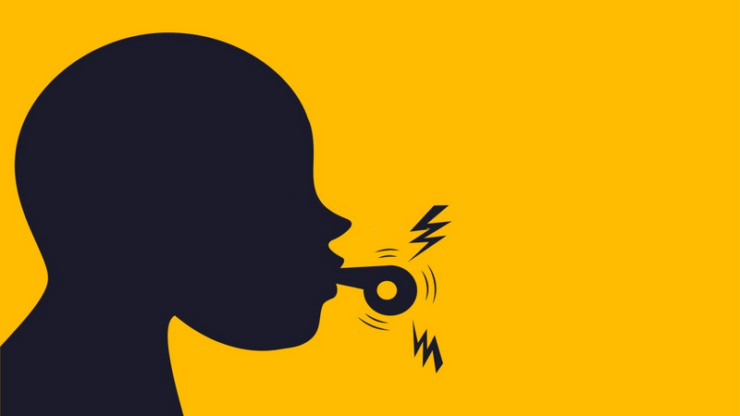Ethics generally serve as moral principles governing how a behavioral activity is conducted. They act as the foundation of every profession, guiding practitioners in their interactions, decision-making processes, and the delivery of duty and care.
In nursing, integrating principles is a basic tenet that shapes the essence of patient care. Caregivers are entrusted with the well-being of individuals in vulnerable states. Nurses are expected to uphold a code of ethics that combines devotion to duty and respect for human dignity, making ethical dilemmas an inherent part of the profession.
These dilemmas can arise in various areas of patient care and challenge nurses to confront situations where they have to balance the rights and autonomy of patients with other considerations such as beneficence, non-maleficence, and justice. Let’s explore some common examples of ethical dilemmas that frequently arise in diverse areas of nursing practice.
1. Patient Confidentiality

Patient confidentiality is one indispensable ethical principle in healthcare. As a caregiver, you may often run into a situation where you must prioritize preserving patient privacy against the need to share information with healthcare team members. Disclosing this confidential information could breach a patient’s trust. Meanwhile, withholding information from fellow health team staff may compromise patient care.
Patients have the right to have their personal information kept confidential. It builds trust and openness in the nurse-patient relationship. Breach of confidentiality can have significant implications on patients, such as embarrassment and mistrust, as well as more severe consequences, such as discrimination or harm.
Nurses must look for the delicate balance between respecting this confidentiality and ensuring that relevant information is shared with appropriate individuals involved in patient care. This may include seeking informed consent before disclosing sensitive information or considering the potential benefits and risks of sharing information without permission.
2. End-of-Life Care

Nurses face numerous ethical dilemmas while providing end-of-life care to patients. A notable issue concerns decisions about withholding or withdrawing life-sustaining treatments.
Nurses are pivotal in facilitating discussions about advance care planning and making sure that patients’ end-of-life care wishes are respected and fulfilled.
Palliative Care
Palliative care is specialized medical care that focuses on providing comfort and relief from suffering for patients with serious illnesses. It centers around emphasizing quality of life rather than prolonging life at all costs.
This is a sensitive issue, and nurses must be trained in undergraduate and graduate programs to consider such ethical complexities beforehand. Individuals signing up to study such a profession must be aware of complexities like pain management, patient privacy, decision-making at end-of-life care, symptom control, and cultural and religious sensitivity.
Make a list of questions to ask at your nursing school orientation, like this one, and enquire about all physical, ethical, and physiological dilemmas to be aware and ready for all the future challenges in the profession before pursuing your degree.
Decisions about Life-Sustaining Treatments
Nurses may also face moral conundrums when patients or their families seek or reject life-sustaining procedures like artificial nourishment and hydration, mechanical ventilation, or cardiopulmonary resuscitation (CPR).
It can be difficult to balance the principles of autonomy, beneficence, and non-maleficence, mainly when there is a disagreement among medical professionals or between the healthcare team and the patient or family.
3. Informed Consent

Before making decisions about the patient’s care, knowing the nature, purpose, risks, and advantages of any proposed treatments or procedures is essential. This is an ethical healthcare practice termed informed consent.
It is crucial for nurses to ensure that the patients are well-educated about the treatment they will receive. This could empower them to participate in the decision-making.
Ensuring Patients Understand Treatment Options
Communication is imperative, especially when directed around clear and understandable information about a sufferer’s diagnosis, treatment options, and potential outcomes.
To help patients overcome language hurdles and cognitive impairments and to make sure that they are informed about the care they will receive, using plain language, visual aids, or interpreters can be beneficial.
Consent For Experimental Treatments
Including patients in clinical trials or administering experimental treatments introduces a new layer of ethical complexity. Here, the core principles of autonomy, beneficence, and justice become paramount.
Nurses play a crucial role in guaranteeing that patients possess a comprehensive understanding of the nature of the proposed intervention. This understanding should encompass the potential risks and benefits of the experiment and the absolute right to refuse or withdraw participation at any juncture.
4. Whistleblowing

Reporting unethical or unlawful activity within an organization, often at significant personal risk, is known as Whistleblowing. Nurses may encounter moral problems when they become aware of wrongdoings or patient injuries.
They have to choose whether to speak out against misconduct, even if doing so may risk their professional standing or job security.
Ethical Obligations to Report Wrongdoing
Nurses must advocate for patient safety and quality care. It may require them to report negligence, malpractice, or unethical conduct within their healthcare organization.
This ethical obligation is grounded in principles of beneficence, non-maleficence, justice, professional codes of ethics, and legal requirements.
Challenges and Consequences of Whistleblowing
Whistleblowing can be daunting for individuals who fear retaliation, ostracism, or professional repercussions for speaking out against wrongdoing.
Nurses must carefully weigh the potential risks and benefits of whistleblowing, considering factors such as the severity of the misconduct, the likelihood of harm to patients, and the availability of internal channels for reporting concerns.
5. Cultural Sensitivity

Delivering patient-centered care necessitates a profound respect for the cultural diversity in patients’ belief systems, values, and healthcare practices. Caregivers must be aware of and address cultural variations in healthcare preferences, communication styles, and decision-making processes to guarantee equitable access to high-quality care.
Healthcare professionals must respect patients’ cultural beliefs, traditions, and customs. This entails acknowledging the influence of culture on health-related beliefs and behaviors. Nurses can achieve this by eliciting patients’ cultural preferences, accommodating religious or cultural practices, and collaborating with interpreters or cultural liaisons to overcome language and cultural barriers.
As professional caregivers, nurses must also be sensitive to cultural variations in healthcare decision-making, acknowledging that patients from different cultural backgrounds may have unique preferences, priorities and values patients from different cultural backgrounds may have unique preferences, priorities, and values regarding their care; this may require nurses to engage in culturally competent communication, negotiate shared decision-making processes, and advocate for culturally appropriate care practices.
Endnote
Ethical dilemmas are an unavoidable part of nursing practice. They oblige nurses to think critically and deal with complex situations. Nurses must balance the need to provide the best patient care while withholding their right to a safe and healthy environment.
As a nurse, some uncertain situations may arise. However, understanding common ethical dilemmas and employing ethical decision-making frameworks can determine the best course of action.







